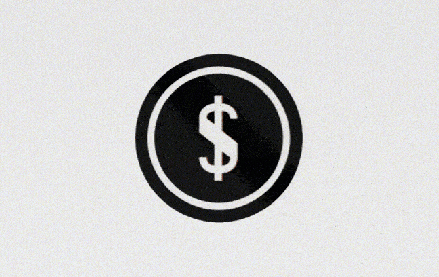MediaMath has signed dozens of SSPs, including former short-changed creditors, after ad tech’s biggest bankruptcy

It has been a little over nine months since MediaMath’s Chapter 11 filing, proceedings that surely rank as one of the biggest financial shocks to the system in the, albeit short, history of ad tech.
The demand-side platform’s demise was significant on several fronts, with some considering it a line in the sand that demarcated critical changes in the sector that occurred in recent years.
Firstly, MediaMath’s widely held status as the first DSP in digital media—at one point, it was also valued at $1 billion—indicates that success in the sector is not solely dependent on innovative technology. Canny politicking in go-to-market strategy also plays a role.
Secondly, the hundreds of millions of dollars in unpaid debts detailed in MediaMath’s June 30 bankruptcy filing also served as a stark reminder of the cold reality of sequential liability, a.k.a. the house of cards that is ad tech.
Such harsh realities meant that MediaMath’s creditors were collectively owed north of $125 million, with those on the sell-side of the industry, i.e., supply-side platforms and their publisher clients, left out-of-pocket.
Further inspection of the bankruptcy filing showed the DSP owed a whopping $73 million to its top 30 creditors, with many of MediaMath’s 300-plus one-time staffers also left short-changed.
However, despite the subsequent weeping and gnashing of teeth, fellow ad tech outfit Infillion swooped in for MediaMath in its subsequent bankruptcy auction in August last year. Albeit, this did not include the financial liabilities the DSP incurred under its earlier leadership.
‘No problem getting SSPs back’
Infillion paid $22 million for MediaMath, which estimated its assets to be worth $100 to $500 million in its bankruptcy filing—a good deal on the face of things—but just how steep would the path to redemption be for the one-time unicorn DSP?
Understandably, publishers are weary of “clawback emails” in the wake of the early phase of the Covid-19 pandemic, as well as the Sizmek flameout of 2019, the only other ad tech bankruptcy that is comparable in scale to MediaMath’s demise.
However, Infillion CEO Rob Emrich told Digiday that outfits in the space have taken a pragmatic outlook, claiming some of the biggest creditors named in the 2023 bankruptcy filing are now trading on the MediaMath platform.
According to Emrich, its relaunch partnerships include 22 direct integrations with SSPs, and the addition of third-party ad networks or data providers on the platform brings that number closer to 33.
“We’ve not had a problem getting SSPs or the infrastructure companies back on board,” he told Digiday, explaining that many of the relationships were struck with former or comparable supply partners.
“In order to do that, we had to renegotiate new contracts,” he noted, “we went through a process with them, and they’re going to continue to go through a process with the [MediaMath] estate to try to get as much money back [through the ongoing bankruptcy proceedings].”
Notable among the names now trading on the platform, according to Emrich, are some of MediaMath’s biggest creditors listed in its 2023 bankruptcy filing. These include Magnite ($12.6 million), PubMatic ($10.4 million), Sonobi ($5.3 million), Equativ, formerly known as Smart, ($3.4 million), and TripleLift ($2.8 million).
“We’ve got most of the major ones back on board, and we’ve signed MSAs [master service agreements] with the remainder of the larger ones,” claimed Emrich. “We’re working on integrating with Xandr [owed $4 million in the bankruptcy hearing], FreeWheel, Google Ads [owed $1.7 million], and AdsWizz [owed $3.4 million].”
Other integrations will follow later in the year, according to Emrich, adding that it has also resumed working with measurement vendors such as DoubleVerify, Integral Ad Science, and LiveRamp.
Digiday contacted several of the ad tech partners named by Emrich, with sources noting the additional rigor applied to credit checks at this time of asking.
In an emailed statement, Quentin Michon, Equativ’s chief financial officer, explained the “strict payment terms” necessary to ensure publishers’ confidence. “This remains a key priority, along with driving enhanced demand and revenue to our publisher partners, and we are fully assured that our partnership with Infillion will help deliver this,” he added.
Advertisers return to the platform?
MediaMath’s June 30, 2023, flameout left many buy-side partners with a particularly bitter taste in their mouths as many had to spend their July 4 weekends migrating clients’ ad campaigns to different platforms.
However, dashed holiday plans aside, just how many will be willing to return to the DSP, especially at a time when many believe the sector as a whole is due for further consolidation?
Emrich told Digiday that spending on the platform is now at a run rate of $500,000 per month, which doubled month over month in the opening quarter; much of this has been generated by net new customers.
According to Tom Triscari, an advertising technology economist at The Lemonade Projects, there is enough demand for more DSPs in the market, provided they can provide unique value, especially as media agencies—the powerbrokers that many credit with the downfall of MediaMath’s first guise—seek alternatives to established Big Tech players, or even The Trade Desk.
“We could see a market where specific DSPs do very specific things, and who knows what happens after that?” he said. “But that’s something that a lot of different people are looking for in this space.”
More in Media Buying

Influencer agencies expand their consulting services as competition grows
Social and marketing agency Socially Powerful last month added consultancy services that aim to hone in on enterprise brand and influencer marketing areas for its clients.

Media Buying Briefing: Is Dentsu’s latest restructure the solve it needs to get back to growth?
The latest new product is Merkury for Media, which aims to place all of Dentsu’s media for clients against first-party data coming out of Merkury, a global data, identity and insights platform.

IPG’s former data chief Arun Kumar: How data collection can be improved without too much regulation
In his book, The Data Deluge, which comes out next week, Kumar argues that as data and data collection and analysis got more sophisticated, somewhere along the way, ethics took a backseat.









